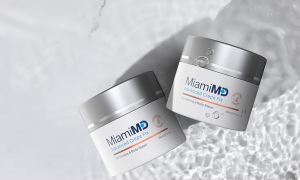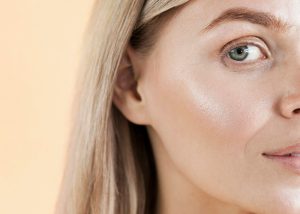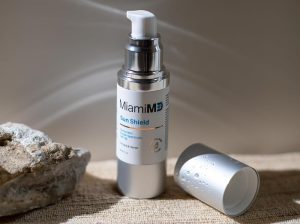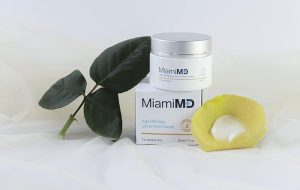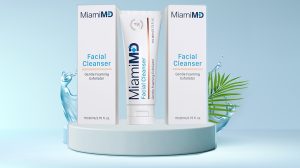How To Improve Skin Elasticity

Ever wondered why some areas of your skin stay smooth and firm while other areas start to sag or wrinkle over time? That’s all about skin elasticity — your skin’s ability to stretch and bounce back.
If you’ve noticed your skin feeling less tight, plump, or resilient lately, don’t worry! There are ways to improve it. Today, we’ll explore what skin elasticity is, why it’s so important for a youthful appearance, and the best ways to keep your skin firm, healthy, and glowing.
What Is Skin Elasticity?
Skin elasticity is your skin’s ability to stretch and bounce back. Think of it like a rubber band. When you pull a rubber band, it stretches, but when you let go, it goes back to its original shape. Your skin works the same way. Elastic skin helps prevent sagging and keeps it looking youthful.
Why Is Elasticity Important?
Elasticity is important because it helps your skin stay firm and smooth. Without it, your skin can look wrinkled or saggy.
Good skin elasticity makes your skin look fresh, healthy, and glowing. It allows the skin to stretch and return to its original shape, which is essential for keeping your facial features lifted and youthful.
When skin loses its elasticity, it can lead to more noticeable fine lines, wrinkles, and sagging, particularly around areas like the cheeks, jawline, and forehead. Maintaining elasticity is key to achieving a more youthful and rejuvenated appearance.
Why Does Skin Lose Elasticity?
There are several reasons your skin might lose elasticity over time:
Aging
As we get older, our skin naturally becomes less elastic. This happens because our collagen and elastin production declines — and these are the proteins that keep skin firm.
Collagen helps to maintain the skin’s structure, while elastin provides flexibility and helps it snap back into place after stretching. As the production of these proteins decreases, the skin becomes thinner and less able to bounce back, leading to sagging and the formation of fine lines and wrinkles.
Additionally, aging can slow down the skin’s ability to repair itself, making it more susceptible to damage from environmental factors like the sun and pollution.
“One of the biggest aggressors for extrinsic damage is improper sun exposure. The sun damages the skin and its elasticity , thereby causing accelerated aging and pigmentation. In addition, pollution, improper skincare habits, sleeping with makeup on, and smoking can also cause your skin’s elasticity to decrease drastically,” says celebrity skin expert Dr Bijlani (1). However, by supporting the production of collagen and elastin through proper skincare and lifestyle choices, you can help slow down the visible effects of aging.
Poor Diet
A diet that’s missing key nutrients can affect your skin’s health. Without enough vitamins, minerals, and healthy fats, your skin may not get what it needs to stay elastic. “Diet plays a surprisingly large role in the appearance and youthfulness of your skin,” Krista Goncalves, CHN, a certified holistic nutritionist (2).
For example, a lack of vitamin C, which is essential for collagen production, can lead to weaker skin structure. Similarly, insufficient healthy fats like omega-3 fatty acids can make your skin dry and less supple. Antioxidants, such as those found in colorful fruits and vegetables, help protect the skin from free radical damage and support its ability to repair itself.
Eating a balanced diet rich in these nutrients can help maintain your skin’s firmness and prevent the loss of elasticity, giving you a healthier, more radiant complexion.
Collagen and Elastin Breakdown
Collagen and elastin are proteins that keep skin strong and stretchy. Over time, however, these proteins naturally break down, leading to a loss of skin elasticity and firmness.
“The reason that collagen is so important is because it serves as a scaffolding that holds up your skin,” says board-certified dermatologic surgeon Dr. Makhzoumi (3). “Without it, your skin just sags and drops.” As we age, the production of collagen and elastin slows down, making it harder for the skin to repair itself and maintain its structure.
Factors like sun damage and pollution can speed this process up, as UV rays and environmental pollutants break down these proteins even faster. This results in fine lines, wrinkles, loose skin, and sagging skin.
Protecting your skin from the sun, pollution, and other environmental stressors, as well as using products that support collagen production, can help slow down this breakdown and keep your skin looking youthful and firm.
How To Support Skin Elasticity
Even though skin loses elasticity over time, there are ways to help it stay firmer longer. Here are a few tips:
Antioxidant Skincare
Antioxidants are powerful compounds that help protect your skin from damage caused by free radicals, which are unstable molecules that can damage your skin cells and break down collagen and elastin. These free radicals are produced by environmental factors such as sun exposure, pollution, and even stress. Over time, this damage can lead to premature aging, including the formation of wrinkles and sagging skin.
One of the most well-known and effective antioxidants for skin health is vitamin C. Vitamin C, also known as ascorbic acid, plays a crucial role in protecting the skin from free radical damage. It helps neutralize free radicals before they can harm your skin, making it one of the best ingredients for preventing and reducing the visible signs of aging.
In addition to its antioxidant properties, vitamin C is also essential for collagen production. Collagen is the protein that gives your skin its firmness and strength. Vitamin C helps in the synthesis of collagen by supporting the enzymes that produce it. Without enough vitamin C, your skin can become weaker, and the production of collagen slows down, leading to the formation of fine lines and wrinkles.
Antioxidants have also been shown to potentially support collagen production, reduce wrinkles and pigmentation, and irritation (4). Using skincare products with antioxidants like Dark Spot Corrector can support your skin’s elasticity and prevent sagging.
Science-Backed Products
As we age, maintaining skin elasticity becomes more challenging, but thanks to advances in skincare, there are now many science-backed products designed to help support and improve skin elasticity.
These products are formulated with ingredients that have been studied and shown to be effective in boosting collagen production, improving skin firmness, and preventing the breakdown of elastin. Using these products consistently can help your skin look smoother, firmer, and more youthful.
Look for skincare with ingredients like peptides, retinol, and hyaluronic acid. These ingredients help your skin stay hydrated and firm. Check out Age-Defying Lift & Firm Cream by Miami MD, formulated with the latest science-backed ingredients to help improve skin elasticity.
Sunscreen
Sun damage is one of the biggest causes of collagen breakdown. Including SPF in your skincare routine every day, even when it’s cloudy, protects your skin (and overall health) from harmful UV radiation and helps keep your skin elastic. UV rays penetrate the skin and break down collagen and elastin fibers, leading to premature skin aging, wrinkles, and sagging. Daily sun protection use in your skincare regimen not only prevents this damage but also allows your skin to repair itself and maintain its firmness.
By consistently applying sunscreen, you reduce the risk of photoaging, helping your skin stay youthful, smooth, and resilient for much longer. It’s one of the simplest and most effective ways to preserve your skin’s health and elasticity.
“The best sunscreen is the one you enjoy wearing, so experiment until you find one that has a pleasant smell and texture and is easy to apply,” says Harvard dermatologist Dr. Waldman (5).
Exfoliation
Exfoliating your skin removes dead skin cells and encourages new, healthy cells to grow. “By improving cell turnover, exfoliation encourages the skin to make new cells, which contain fibroblasts, which are important in collagen synthesis,” says board-certified dermatologist Dr. Marcus (6).
Regular exfoliation helps boost collagen production, which is key for elasticity. As you remove the outer layer of dead skin, your skin becomes smoother and appears more youthful. This process not only promotes the regeneration of healthy skin but also allows other skincare ingredients to penetrate deeper and work more effectively.
Over time, exfoliating can help reduce the appearance of fine lines and wrinkles, improving skin texture and firmness. Incorporating exfoliation into your routine can, therefore, play a crucial role in maintaining skin elasticity and achieving a glowing complexion.
The Bottom Line
While skin naturally loses some elasticity over time, there are ways to help it stay firm and youthful.
Taking care of your skin with antioxidants, sunscreen, and science-backed products can go a long way in supporting elasticity and keeping your skin looking its best. Lifestyle changes like regular exfoliation, a healthy diet, and proper hydration also play key roles in promoting collagen production and maintaining skin resilience.
Although you can’t completely stop the natural aging process, consistent skincare habits can help slow it down and keep your skin glowing and smooth for longer.

